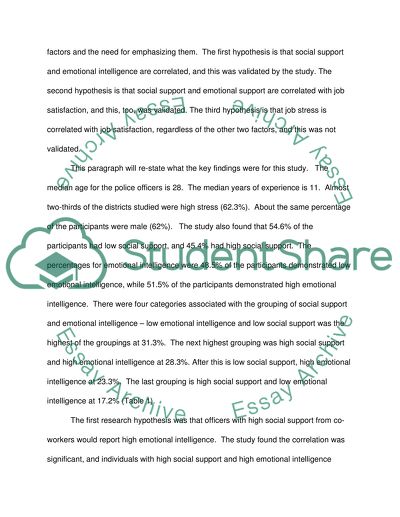Cite this document
(“The effect of perceived job stress, social support, and emotional Dissertation”, n.d.)
Retrieved from https://studentshare.org/sociology/1392975-the-effect-of-perceived-job-stress-social-support-and-emotional-intelligence-on-job-satisfcation-among-urban-police-officers
Retrieved from https://studentshare.org/sociology/1392975-the-effect-of-perceived-job-stress-social-support-and-emotional-intelligence-on-job-satisfcation-among-urban-police-officers
(The Effect of Perceived Job Stress, Social Support, and Emotional Dissertation)
https://studentshare.org/sociology/1392975-the-effect-of-perceived-job-stress-social-support-and-emotional-intelligence-on-job-satisfcation-among-urban-police-officers.
https://studentshare.org/sociology/1392975-the-effect-of-perceived-job-stress-social-support-and-emotional-intelligence-on-job-satisfcation-among-urban-police-officers.
“The Effect of Perceived Job Stress, Social Support, and Emotional Dissertation”, n.d. https://studentshare.org/sociology/1392975-the-effect-of-perceived-job-stress-social-support-and-emotional-intelligence-on-job-satisfcation-among-urban-police-officers.


